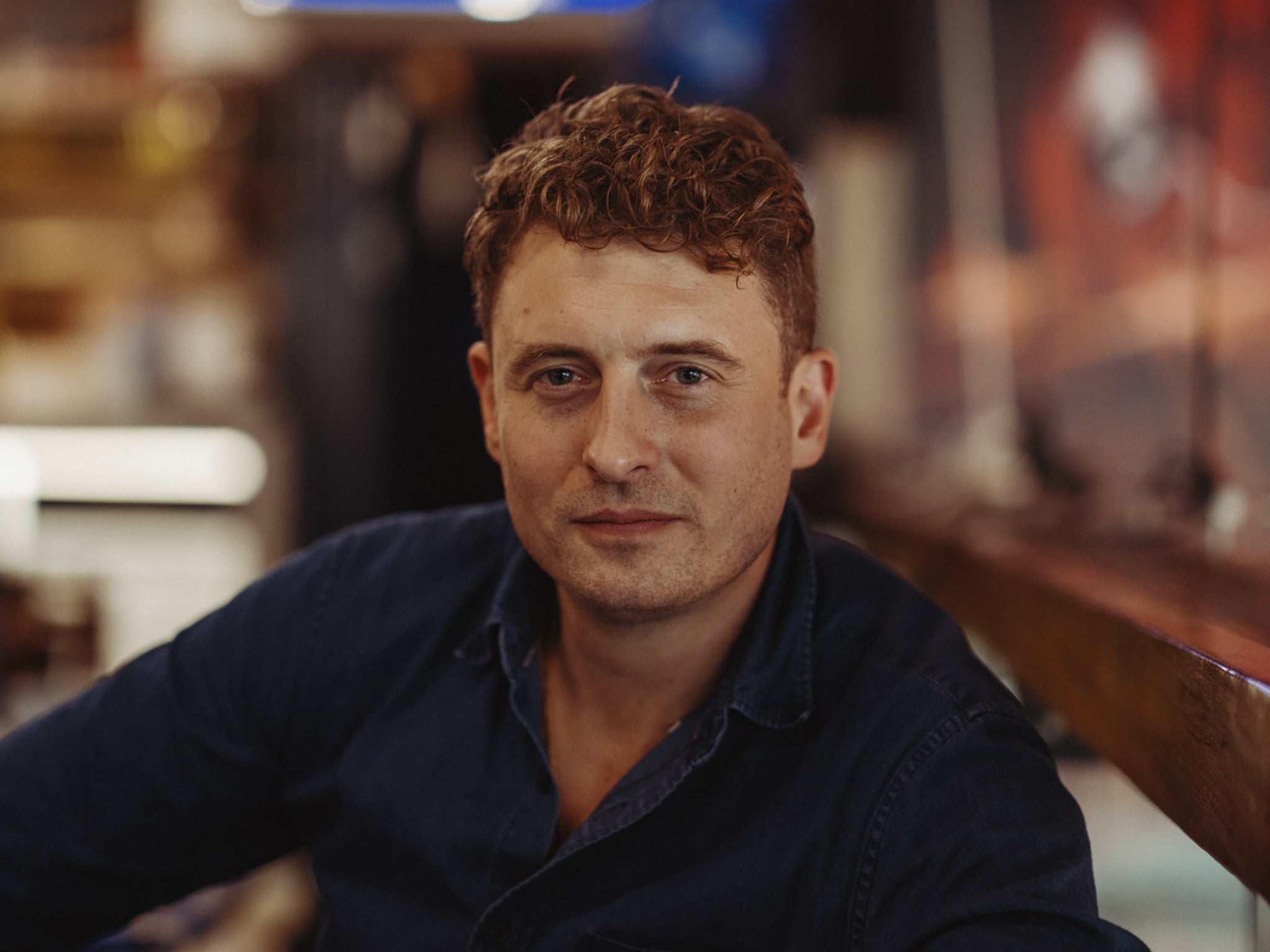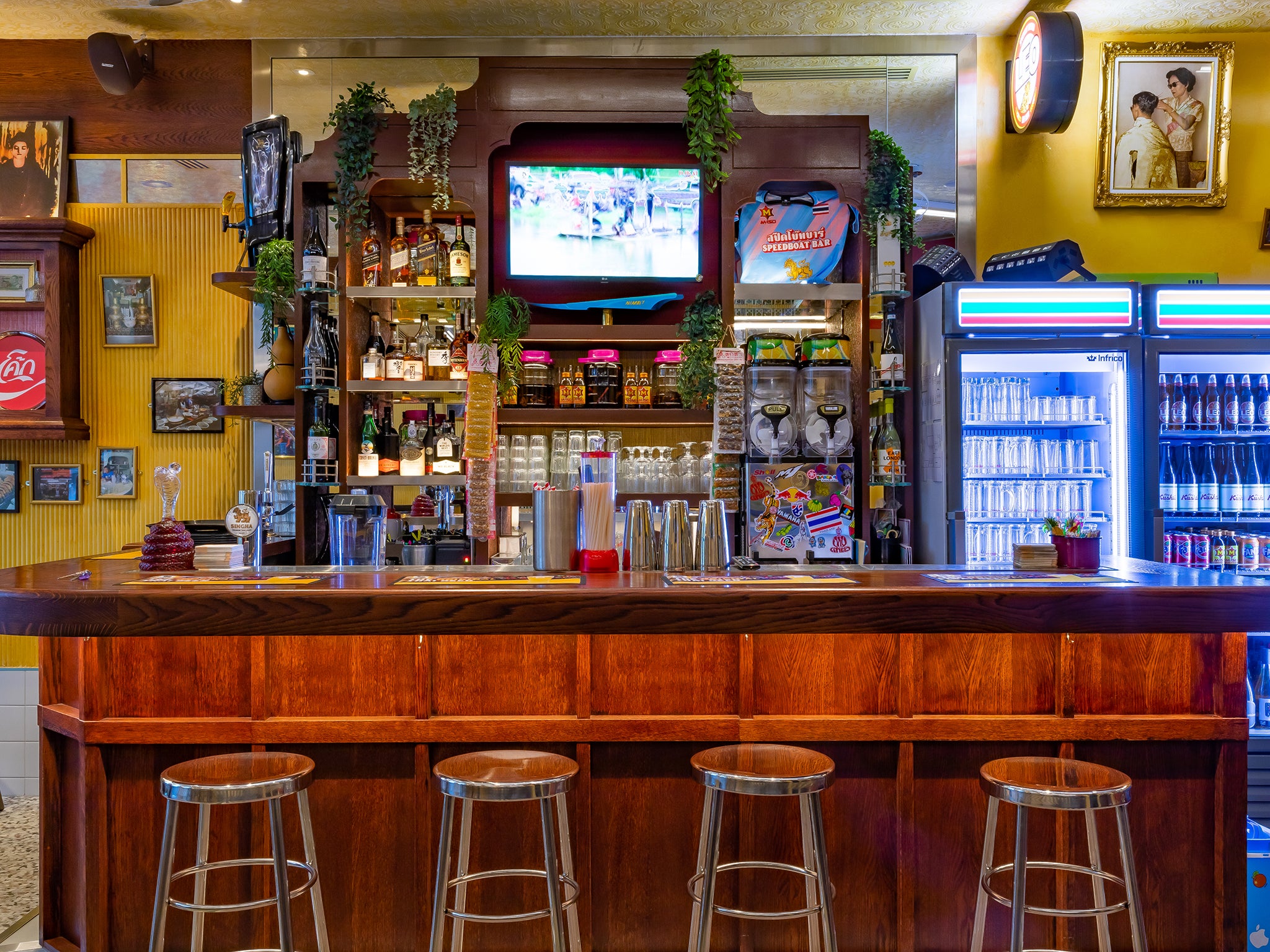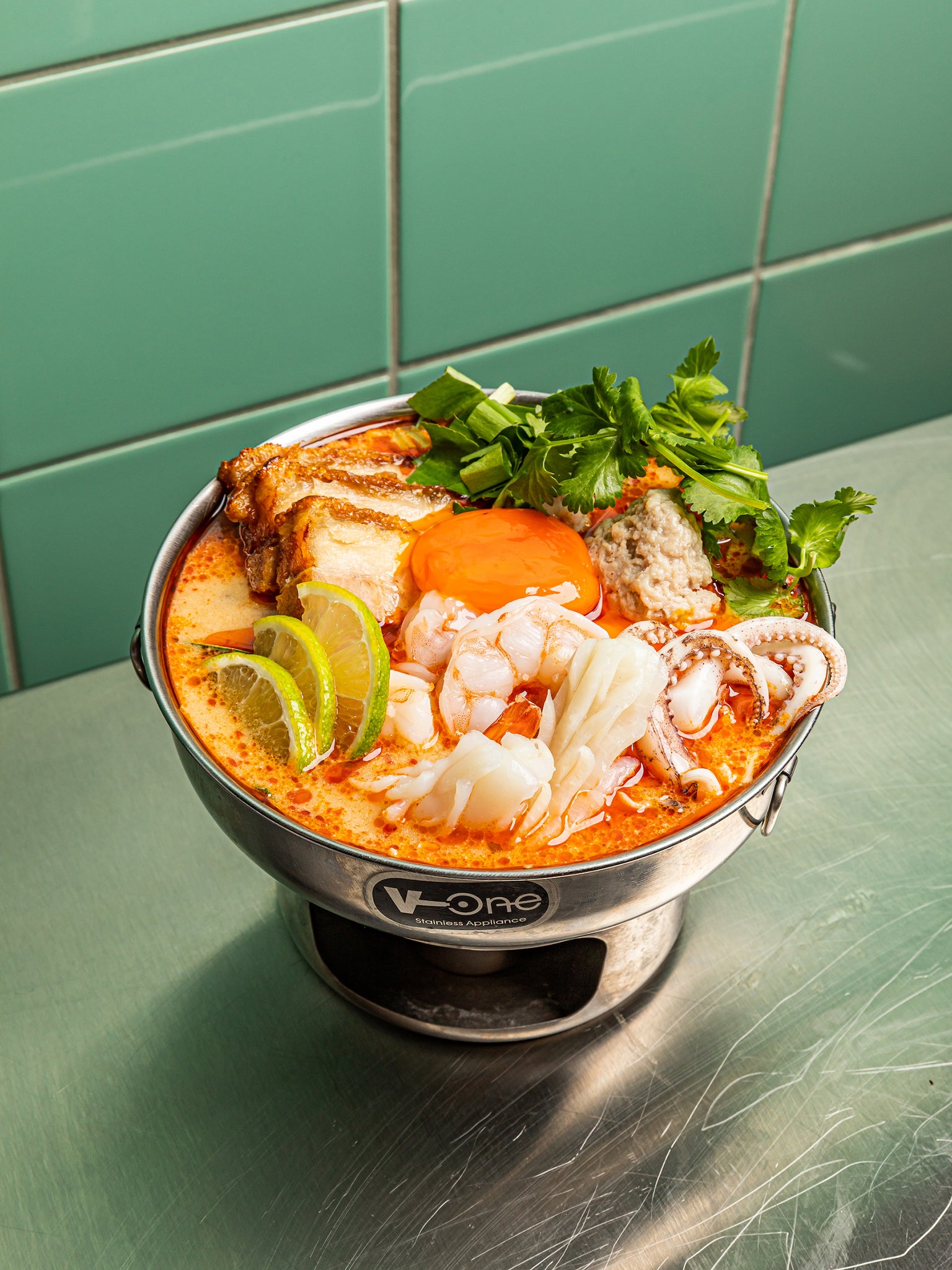Luke Farrell: ‘Our guests appreciate authenticity – otherwise what’s the point?’
Running four restaurants is no mean feat, but opening them all in the same year is on another level entirely. Luke Farrell is pretty chill about it, even if the food he serves is red hot. Hannah Twiggs tracks him down to talk about bringing the heat to London’s West End


Your support helps us to tell the story
From reproductive rights to climate change to Big Tech, The Independent is on the ground when the story is developing. Whether it's investigating the financials of Elon Musk's pro-Trump PAC or producing our latest documentary, 'The A Word', which shines a light on the American women fighting for reproductive rights, we know how important it is to parse out the facts from the messaging.
At such a critical moment in US history, we need reporters on the ground. Your donation allows us to keep sending journalists to speak to both sides of the story.
The Independent is trusted by Americans across the entire political spectrum. And unlike many other quality news outlets, we choose not to lock Americans out of our reporting and analysis with paywalls. We believe quality journalism should be available to everyone, paid for by those who can afford it.
Your support makes all the difference.Luke Farrell is a busy man.
His latest opening, Speedboat Bar on London’s Rupert Street, is his fourth in the space of a year, and the latest in his edible travelogue of Southeast Asia. On the menu this time is the unqiue blend of cuisines from Bangkok’s Chinatown, with special input from the longtail boat racers after which the restaurant is named.
Classic Chinese dishes with an unmistakably Thai influence – featuring complex curries tempered with fresh salads, stir fries supplied by locally supplied rice noodles and a 7-11-inspired pineapple pie for dessert – are powered by the specialist herbs Farrell grows in his greenhouses in Ryewater, Dorset.
It’s been the hottest ticket in town (literally) since it opened in September, and joins the ranks of food elite favourites Viet Populaire, Plaza Khao Gaeng and Bebek!Bebek! on Farrell’s resume.
We caught a quick five minutes with the gardener-chef to talk about bringing the heat to London’s West End, how he managed to refine a highly complex cuisine into such a small menu and the tropical paradise he’s cultivating in Dorset.
We can’t talk about Speedboat Bar without talking about how spicy AF the food is. What’s the least offensive thing on the menu for someone who can’t handle the heat, and what’s the most adventurous?
We don’t try to be spicy, or more specifically chilli hot. We just prepare dishes simply as they would be in Thailand. Nuanced flavours within the heat make for a successful Speedboat dish. There’s heat from fresh green peppercorns, black pepper, turmeric and ginger too, as well as chillies for their perfume. We have a smoked duck breast, that’s a Yaowarat classic that we dress in a little garlic oil with cucumber. It’s smoked over Chinese gunpowder tea with woody spices. This is an example of a dish that is equally complex, but without chilli as an element. Now, it is served with a vinegar chilli dipping sauce but a mild orange chilli is used. Just dot a little on the duck fat, the rich oiliness will mollify any extreme chilli heat and you’ll get all the flavour, as well as upping your tolerance.
Asian food is pretty universally spicy, but it’s often toned down for meeker audiences in the West. Was it a conscious decision not to do that? And do you think you’re trying to bust some myths Westerners might have about the cuisine?
Anything done incorrectly in my kitchen is going to annoy me, the same goes for toning down flavours. I would think it an incredible disservice to the people I’ve been fortunate enough to learn from in Thailand if I changed their recipes, to suit “Western” palates. Or diluting the chillies and herbs grown in my greenhouses somehow. Our guests appreciate that, otherwise what’s the point?
Speedboat Bar was your fourth opening last year. You must be a busy guy – how do you manage the stress?
Years of devilish scheming finally had a platform, so I consider it a joy. Coming up with ideas is one thing, but the real creativity is making them happen and the hard work and diligence that requires. I have the most wonderful partners in JKS Restaurants to thank for everything. When I do get upset I sit down with a big pile of cookbooks and either read them or throw them, it depends.

In your own words, what’s the difference between all your restaurants?
Plaza is Southern Thai food without compromise: Phattalung curry pastes, fresh coconut and herbs. Speedboat Bar is the food I’m most familiar with in Bangkok and the happy food memories of dining with the speedboat racers. Viet Populaire is banh mí in the Hanoi style which is more about the quality of the ingredients. It’s dainty and classy – perfect with a strong Vietnamese coffee. Bebek!Bebek! is Indonesia’s favourite street food, like bebek goreng and ayam penyet with sambals done exactly the same, made on massive stone pestle and mortars.
Speedboat Bar has such a specific influence: Yaowarat Road, AKA Bangkok’s Chinatown, and Thailand’s speedboat racers. Essentially, “Chinese food through the prism of Thailand” as Jimi Famurewa puts it. But when I visited it didn’t feel overcomplicated: the menu is small and precise, the decor feels like an homage not a gimmick. How do you achieve that? And how did you know it would work in the melting pot of London’s own Chinatown?
I think the food has to lead, that’s the reason people are going – the decor just seemed natural to support the menu. It was very important to me to use suppliers like Lo’s Noodles on the menu, as well as supporting local suppliers in Chinatown. Speedboat Bar is part of this unique London community now. In fact, that extends to Thailand too, the pickled fruit is made by a collective of single mothers in Bangkok.
The vibes at Speedboat Bar feel just as important as the food. Which do you think does the most talking?
For me it’s just how I think a restaurant should look – I live in Bangkok and this is how it is.

Sometimes I can’t help myself though, that’s why there are two giant speedboats hanging from the ceiling. We tested one out on the canals outside Bangkok and every time I see it alongside the portraits of the speedboat racers, I feel happy.
The drinks, too, are important. Is it elevated drinking food, in a way?
The food follows some pretty strict and traditional rules. It was important to have a frozen beer on the menu because beer is drunk with ice in Thailand, and to get a whisky soda on because for me there’s nothing better or more complimentary to Thai food. Iced beer towers, M150 energy drinks, coffee turbo slushies, durian margaritas represent what’s available all over Bangkok, just not so tantalisingly condensed as at Speedboat Bar!
Tell me about Ryewater Nursery. How did that come about, what do you grow there and is it something more restaurateurs should be doing?
Ryewater Nursery is my family home where we have a series of tropical greenhouses full of butterflies and herbs, mangoes, papaya, gingers, chillies and passion fruits. Simply put - fresh produce like Thai basil, holy basil, all the chillies, and lemongrass that makes us a Thai restaurant.
If you have the herbs you can do anything. If you don’t then you’re never going to enjoy the delicate perfume and freshness that Thai food is all about. It’s a very complicated and expensive part of the restaurants, but I believe essential to their success.
I think more restauranteurs are looking at growing their own produce, and I have long consulted on growing tropical herbs for some of the capital’s best restaurants. There’s nothing better than to give a herb to a grower that I’ve proven works and then I see it on the menu in a London restaurant. That’s one less thing we need to import, and it’s fresher too.
What’s your favourite thing you grow at the nursery and why?
I like growing ginger, galangal and turmeric. These roots lose their buzz if they are imported and they are so essential to a good curry paste or soup. The fragrance is almost overpowering when you dig them up, and it really transports me back to the markets of Thailand.
It’s a question I’m sure you’re sick of hearing but one I have to ask: how do you feel about being a white man championing Southeast Asian cuisine in the UK, and how do you make sure you get it right?
I believe that much like anyone can become a medical doctor or something similar, they don’t have to be from a certain country or background. Food is the same. I’ve specialised in this, and this is my experience of it. I’m not pretending I was born in Thailand or that I grew up there. I’ve got an aunt who is French but can’t cook a soufflé to save her life.

Join our commenting forum
Join thought-provoking conversations, follow other Independent readers and see their replies
Comments